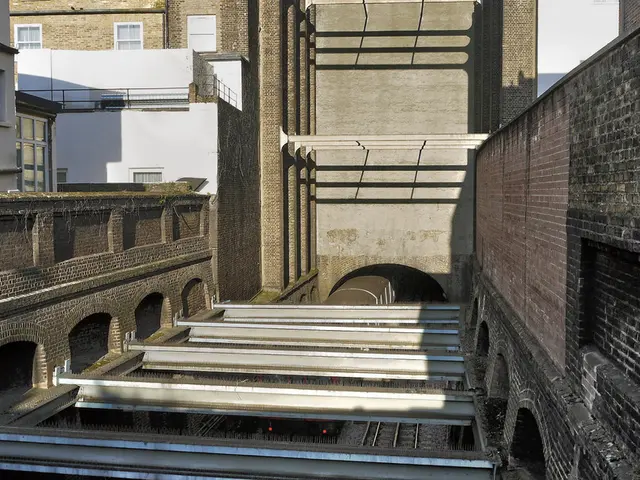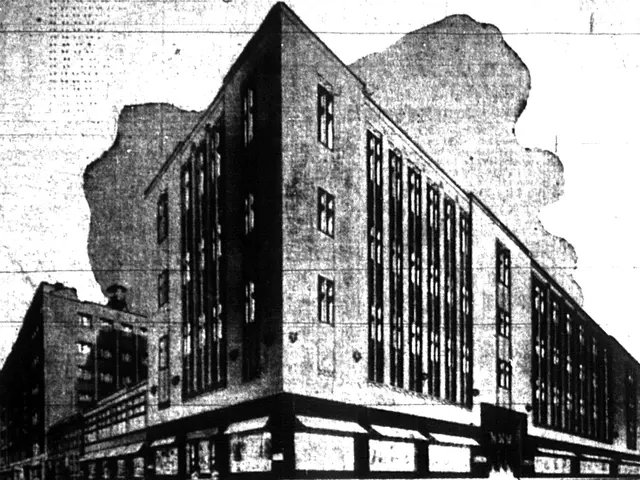Real estate costs persistently surge, despite a prolonged period of unsold homes
Rising Home Prices Persist Amid Slower Sales
In the current housing market, prices continue to climb despite a slowdown in sales. This trend is primarily attributed to an imbalance between housing supply and demand, according to recent reports [1][2][3].
Despite a significant increase in active listings by 28.9% year over year and reaching post-pandemic highs, inventory remains 12.9% below pre-pandemic levels, indicating a relatively tight supply [1]. The slow construction and fewer listings in prior years have contributed to this tightness, with large builders continuing their efforts but smaller ones exiting the market, limiting overall new supply [2][3].
Higher mortgage rates, currently around 6.7%, are also keeping some buyers sidelined, but demand remains strong among those who can afford it, maintaining price pressure [3]. The ongoing demand, combined with elevated mortgage rates, has led to a competitive market, potentially resulting in more modest price decreases than in previous years [1][2].
As for the buyer-seller dynamics, there are currently more sellers than buyers, with sellers becoming more willing to negotiate and reduce prices—but these price cuts are still modest, contributing to stable or slightly higher prices [1][2].
Regarding the potential impact of eliminating capital gains taxes on home sales, economic principles and past precedents suggest that such a policy could increase housing supply, potentially alleviating upward price pressure. However, the overall effect on prices would depend on various factors, including investor behavior, mortgage rates, demand, and local conditions [1][2][3].
Industry groups have long advocated for reforms to the capital gains tax on home sales and increasing the caps, arguing that current caps are an incentive for homeowners to avoid selling [4]. Rep. Marjorie Taylor Greene introduced a bill to eliminate capital gains taxes on sales of primary homes earlier this month [5]. However, the bill's passage and financing remain uncertain.
In summary, the persistent price increases despite slower sales are driven by tight supply, constrained construction, and ongoing demand among qualified buyers amid higher mortgage rates. Eliminating capital gains taxes on home sales could increase supply by motivating more sellers but may also have mixed effects depending on investor behavior, making its overall impact on prices complex [1][2][3].
References
- Zillow Research
- National Association of Realtors
- Freddie Mac
- National Association of Realtors
- Congress.gov
Investors in real-estate could find opportunities due to the persisting housing-market tightness, as a slow construction rate and fewer listings by smaller builders have limited the supply [2][3]. The ongoing trend of rising finance costs, with mortgage rates nearing 6.7%, may steer some potential homebuyers away, but the demand from those who can afford it, along with the possibility of increased supply through potential capital gains tax reforms, could maintain investing interest in the housing-market [1][3].




